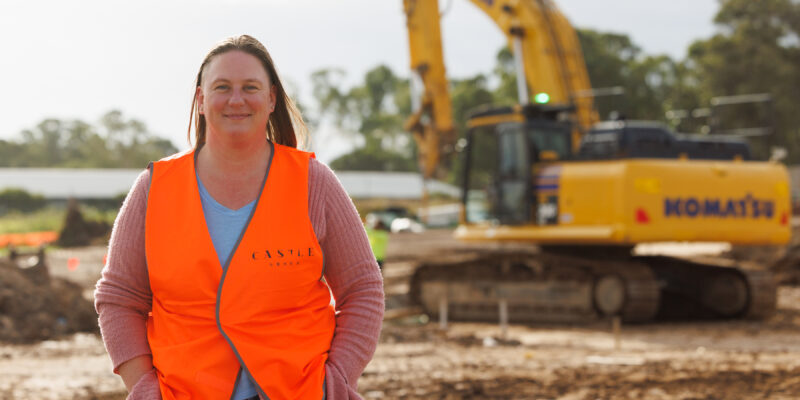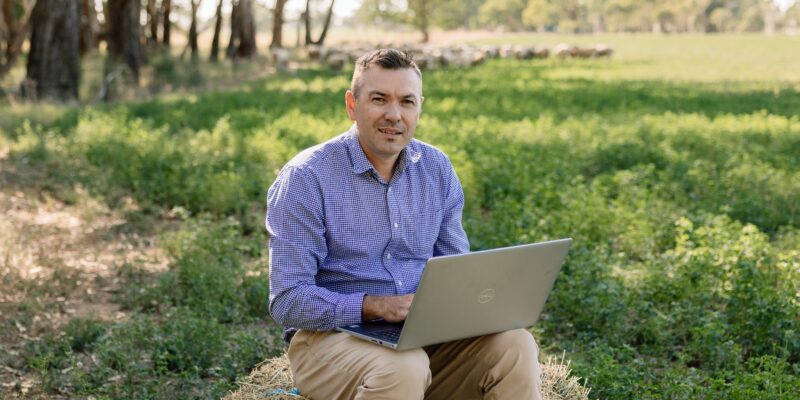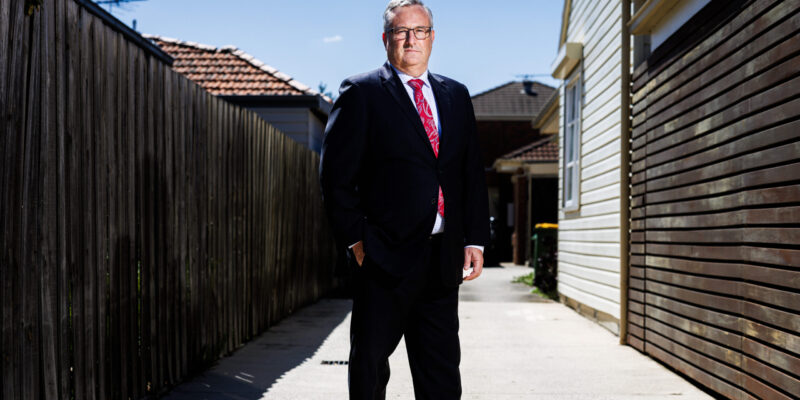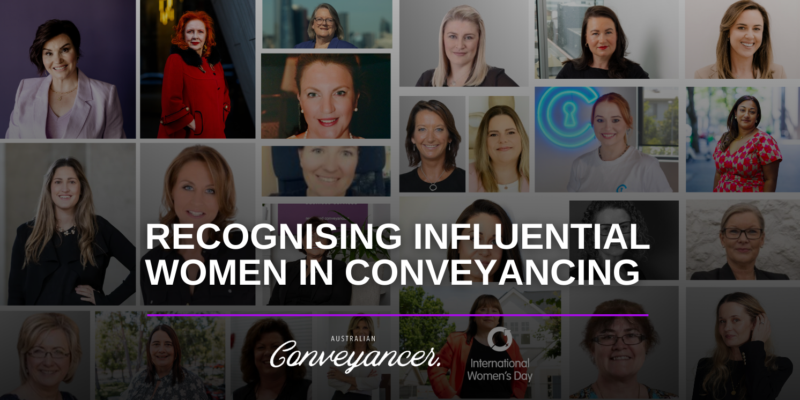QLS enters a new era: Help where it’s needed
Matt Dunn stepped into the role of CEO at the Queensland Law Society in March, having served an ‘apprenticeship’ dating back almost two decades. The Tasmanian native’s long tenure with the society – punctuated by a stint at the Law Council of Australia – has already seen him spend 13 months as acting chief executive. Now he is ready to tackle the role for real. Australian Conveyancer sat down with Matt to hear about the many challenges facing lawyers in Queensland and his plans for practical advice and guidance for the industry.
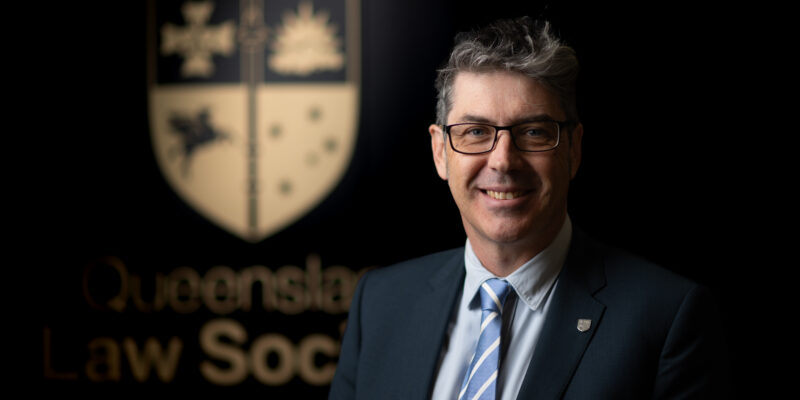
MATT Dunn stepped into the role of CEO at the Queensland Law Society in March, having served an ‘apprenticeship’ dating back almost two decades. The Tasmanian native’s long tenure with the society – punctuated by a stint at the Law Council of Australia – has already seen him spend 13 months as acting chief executive. Now he is ready to tackle the role for real. Australian Conveyancer sat down with Matt to hear about the many challenges facing lawyers in Queensland and his plans for practical advice and guidance for the industry.
Australian Conveyancer – How did you get into the law and conveyancing?
Matt Dunn – My main interest was in computers and technical disciplines. A maths teacher said I should do is do engineering and law – stuff that we’re going to need in the future. But in my first year at law school, we had a lovely Canadian professor who got us to look at the Eddie Mabo case. It was the first time I’d ever even read a legal decision. It fascinated me. It was amazing to study.
AC – What were the early days of your career like?
MD – I worked for the government, then overseas for a while in personal injuries, then back Australia and I started in intellectual property, which brought that technology work to the law. Then I came to the Queensland Law Society where I was involved in policy work. One of the first committees was the property law committee, which was primarily interested in conveyancing. Again, it was like that initial incredible Mabo experience.
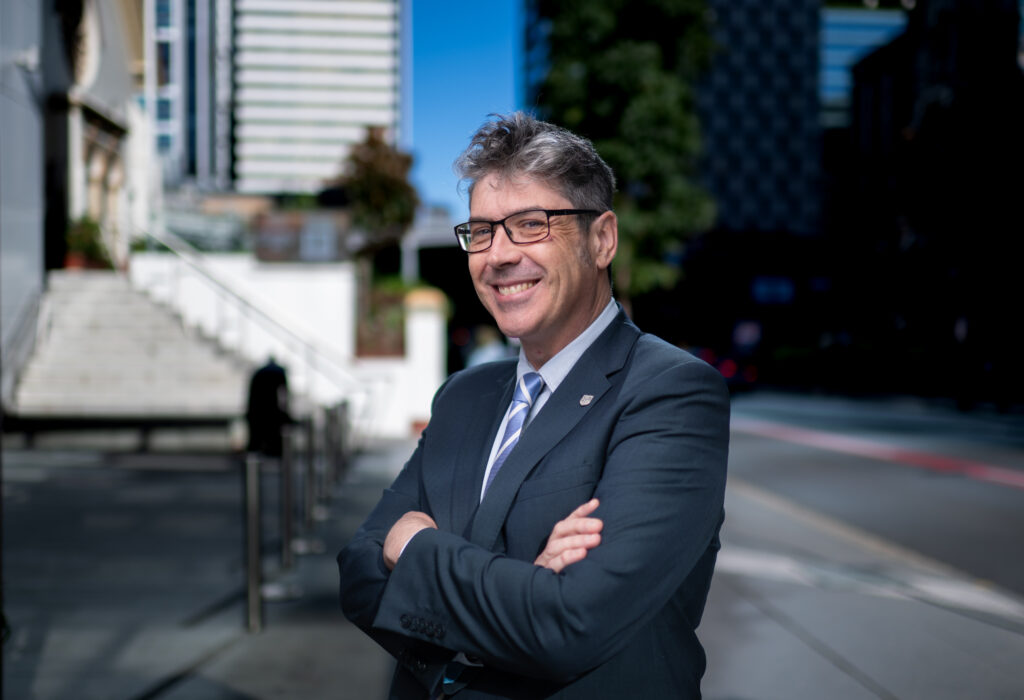
AC – What did you like about that aspect of the work you were doing?
MD – I had had no experience of property conveyancing, particularly in Queensland, no real connection to that. Then suddenly I found this interesting, nuanced field in the world of property where there’s so many layers, there’s a lot to learn and you’re never really finished. There were some fabulous practitioners working on our committee with decades of experience who were real leaders. The depth of their experience and knowledge was infectious. There’s always something new to learn. There’s always a development in property and in conveyancing particularly. There’s always some new grand scheme to do something useful, bad or indifferent. That’s always an interesting and wonderful thing. It’s great because it doesn’t stay static. It keeps churning – probably to the chagrin of many who have to keep up. But ultimately, it’s always fresh.
AC – Any memorable issues you tackled in that space?
MD – One great leap forward was one when Canberra decided we were going to put environmental stars for residential houses like they have for commercial buildings. They used a house in Melbourne as the model, so there were stars for insulation and bricks. That was a good model for Victoria. But how does that work for a Queenslander where you’ve got a single skin and you’re up on stilts. There’s no point having insulation because it’s a design built to dissipate heat, not to insulate it which the Victorian designs were around. Happily, they gave up once we said it doesn’t work for anything in the tropics.
What are you most focused on as a CEO of QLS?
MD –We’re running a major strategic planning process mapping our vision and priorities for the next five years. It’s a happy coincidence that I start the job and map out the next five years. One of the key things is investing on practical assistance, guidance and support for our members, particularly the legal practices working through a lot of compliance burdens. We want to make sure practices are sustainable and can endure and thrive. There are many lawyers out there who are really great at doing law who probably need a little help with the business side because they’re so busy. There’s a big, important job for us to do, doing more in that space.

AC – You were acting CEO for a while before (Rolf Moses) took over. Now you have the top job. How does that feel?
MD – As an acting CEO, you’re accountable for things, but you’re kind of not – whereas as the appointed CEO you ultimately have to take responsibility for things. It’s real.
AC – Can you unpack some of the emerging issues that will impact on your members in the near future?
MD – A few things are kicking around now that are going to have quite a significant impact on the property sector, not just in Queensland but also across the country. In terms of government policy here in Queensland, we are moving to even more of a disclosure regime. The Property Law Act updates the foundational elements of our property practice structures. It’s not radically changing things, but it is adding several new provisions that deal with disasters, for example. If there’s a disaster with a cyclone, there’s the opportunity from a statutory point of view to kind of hold time in abeyance to allow people to deal with the disaster and then start again, which is good. That also brings the vendor disclosure regime where a vendor will need to provide the buyer with more information about the property and what they know about the property. That’s going to be a very big change to the way we do contract formation. Contracts in Queensland have the offer for a property in a full contract that’s capable of acceptance. So the negotiation happens with contractual documents, which is very different to some of the other states where there is a deal done at the beginning and then there’s work done on due diligence. Eventually the exchange happens and then settlement happens. Whereas in Queensland it happens the other way around. The contract is first, then the due diligence and then eventually the settlement occurs. So, it’s going to really change that contract formation process. That’s a profound impact.
AC – There’s a lot going on in the cyber security space, isn’t there?
MD – It is already having quite an impact, but we’ll have even more. As governments take more and more measures to try and deal with cybercrime and cyber fraud – which is really huge as an issue here in Queensland. Our professional insurer has their requirement to read out loud and read back account details. That is always a bit of added burden for law practices. But it is an effective tool stopping claims, picking up frauds and things that have gone wrong. Hopefully the move in the banking system to the new pay ID might be a way of being able to try and marry up both the identity and the bank account details. The fact that we’ve had a banking system based just on numbers and not on a name or an identity for a very long time has meant that this structural weakness is being exploited by cyber criminals.

AC – What about Artificial Intelligence?
MD – We’re not yet sure how that’s going to change things. If you could ever get to the point where you had a generative AI tool that was creating a smart contract on the blockchain, then maybe the entire process of conveyancing and the sale of property could end up being automated – from one end to the other. I don’t know that that’s probably the best result for people.
AC– I also know you’re facing issues with Anti-Money Laundering. Can you talk about that?
MD – Probably the biggest issue is Tranche 2 of the anti-money laundering, counterterrorism financing reforms. Both the contract formation element and negotiation for sale would catch a lot of real estate agents and legal practitioners as well. You’ve got to do all sorts of things, including make reports on suspicious matters to the regulator and not tip off your clients that you’ve dropped on them to the regulator. That will be quite a big issue. In the conveyancing space, it will force us to ask a lot more questions about clients and do a lot more due diligence than we’ve ever done – really understanding where the client’s money is coming from. Asking lots of questions will be uncomfortable and, in some cases, not met well by clients.
It is going to be a really big and difficult transition for the profession to make – and cost a lot too, because that will be a lot of additional work that will need to be done and it’s got to be paid for somehow.
AC – Where is Queensland’s property market right now – and what are your thoughts on the Federal Government’s plan for 1.2 million homes by 2029?
MD – What our members tell us is that the highs of COVID are over. Interstate migration into Queensland is keeping the market resilient. But we’re not anywhere near the highs of the COVID years. It’s kind of easy for the federal government to have an aspirational target but harder to deliver on the ground. One thing we do know is that we need more supply, especially in the con urban centres, especially in Southeast Queensland where there is such a migration. There’s a need for a lot more development, a lot more building to sort of release some of the pressure that’s built up in the especially in the rental market.
Making it happen is not as easy as having a policy about making it happen. There are a lot of expensive labour and supply chain constraints. But even if half that program is half successful, that’s a real benefit. Even if it’s a quarter successful, it will still be better than not doing anything.
AC – Property seems to have become a political football. Is it something that is occupying your mind in the in the work that you’re doing?
MD – Rental availability and affordability is an issue driving a lot of the discourse here in Queensland, especially with the upcoming state election. Housing affordability and particularly rental affordability is one of those hot button issues. From a policy perspective it’s a big issue – and it’s also got a lot of tentacles in flow.
Folks not in the purchase market for property because it’s very expensive or because they haven’t got the resources for deposits or other various things end up in the rental market.
There’s not enough investment in social housing. That pushes a lot of vulnerable and marginal people into the private rental market which then compounds rental market issues. Adding absentee investors to the limited number of properties worsens this even more. Then there are those empty properties not being used in the market – warehousing capital in a safe way for the capital growth. Then we’ve got the short-term rental Airbnb that takes traditional rental properties out of the market, particularly on the Sunshine Coast or the Gold Coast. There’s always tension between people trying to get reasonably medium-term leasing properties and then the short-term holiday letting kind of properties which are all in the one place in the one set of buildings.
It’s a soup that creates a lot of tension. It’s hard for government solve these types of problems, especially with the spending on infrastructure and social house that is needed. Perhaps it’s easier to make legislative and policy changes in the private rental market than to invest in social housing.
It’s great for those that own property when property values keep increasing reasonably rapidly, but the problem with that is it makes it very difficult for people to make that jump. You end up with a two-speed kind of economy. For many, it means
having to move 20kms away from the major cities’ CBDs to the fringes with very long commutes – or changing their lives completely. But even the prices of those regional centres have increased. It’s more difficult than just moving to Toowoomba because you have got to get a job in Toowoomba, or a job in Bundaberg or in Wollongong or in Newcastle, or in Bendigo.
AC – You lived in the UK for a time. Do you think there are any lessons to be learned from their property experience?
MD – It’s a different kind of property market. Everyone would start with a one bed apartment and do it up as much as you could. Then after a few years you’d sell that and you’d get two-bed, hold that again for a bit and then you’d probably try and get something that was semi-detached – maybe two up, two down. Then you jump up to hopefully a larger, maybe even a detached home.
So it was a real ladder. It took time and effort and energy, and years to jump up with little increments. But I think in modern Australia people are sort of looking at four-bedroom, two bathroom houses from the beginning. That’s what we want rather than starting small and building up over decades. Maybe my kids might end up having to do that to get into those kinds of properties. It’s not just going to be the Forever House first and then live in it forever. It’s going to be a process.
AC – Could conveyancing be carried out by other qualified professionals apart from lawyers in Queensland.
MD – This was the interesting question at the end, wasn’t it?
Look, I’m the CEO of a legal professional association. I have the view of my membership and from the point of view of where I work and where I come from.
But the interesting issue of who should do conveyancing is that sometimes conveyancing is transactional, sometimes it’s mechanical and sometimes it’s not. There are elements to every conveyancing file which are very methodical and are very transactional.
And then there’s the parts that are more complicated and the parts which involve judgment and knowledge.
So it’s more doing conveyancing well is about more than just ordering searches.
It’s getting the searches back, really understanding what those results mean and then being able to advise the client about what the impact of that is for them.
That involves skill and discretion, energy and effort.
Lawyers are best place to give legal advice, I would suggest, because that’s what they’re trained to do.
So that aspect of it is really quite important and the other part particularly here in Queensland is that our conveyancing regime being a bit different to some of the other states.
Generally we run on maybe 30, maybe 45 if you’re lucky, day settlements on residential properties. And it’s also got a lot of complexity. Government lays at a lot of obligations and bits and pieces into that process, so there’s a lot of steps. There’s a lot of ways to get things wrong, and there’s a lot of ways to miss things. So from that point of view, I’d say lawyers are well placed to be able to advise the clients about the impact on their property, advise them about this complexity, what it means and what all of these different moving parts are – particularly with our vendor disclosure regime coming. Really being able to translate what that means and advise a client about is one of those things I know will be an issue with real estate agents.
Inevitably, the buyers going to say this easement that’s here. What’s that about?
What does that mean?
The agents going to have a choice then about are they going to try to explain that to the potential buyer.
If explanation about the legal effect of an easement is wrong that the buyer relies on and suffers a whole lot of loss and detriment as a result, then they’ll sue the real estate agent at the end of it. It’s tricky.
So my perspective and my hope is that our lawyers can do what they’re good at, which is legal advice work.
More than transactional work, actually giving people good advice about what the contracts mean, what the properties mean, what the results mean.
So that buyers are informed.
The value of that is people who are more informed in the conveyancing process tend to want to terminate less because they know what they’re buying and why they’re buying it and what their options are.
